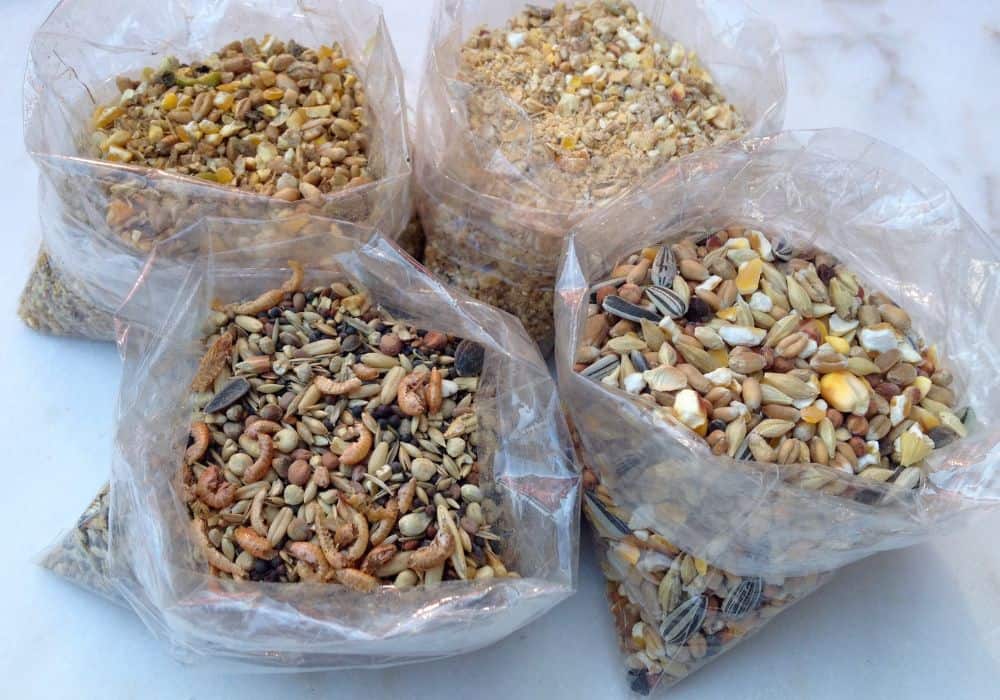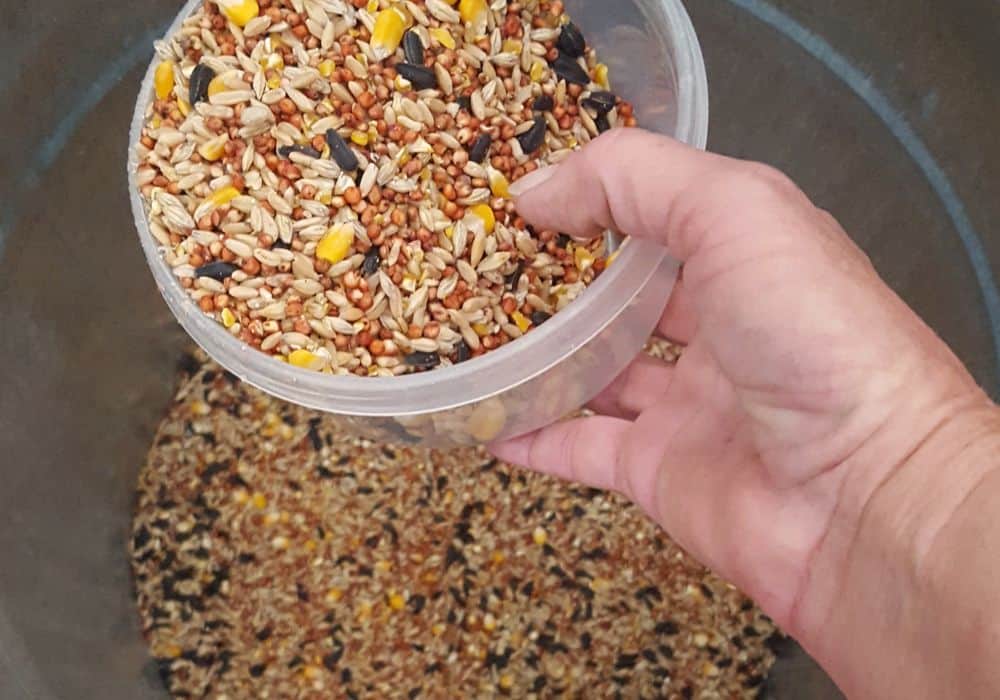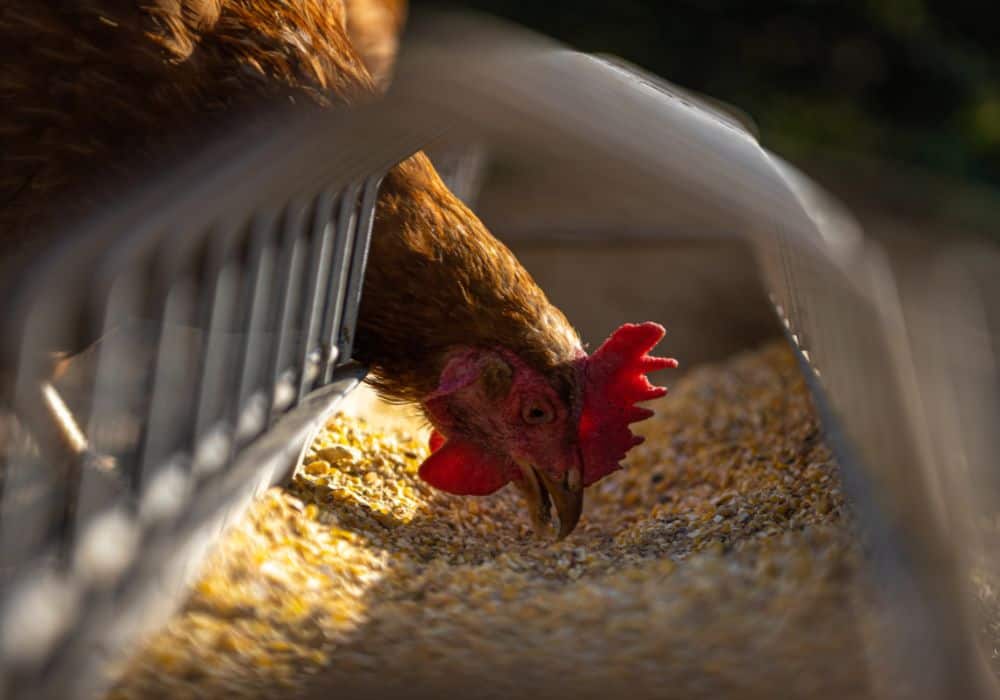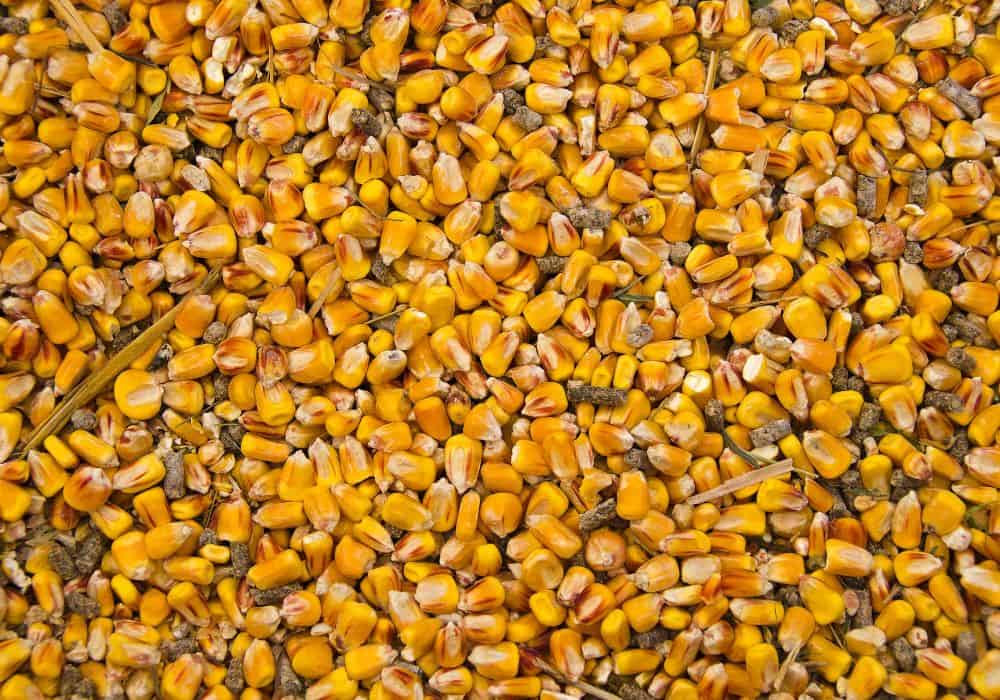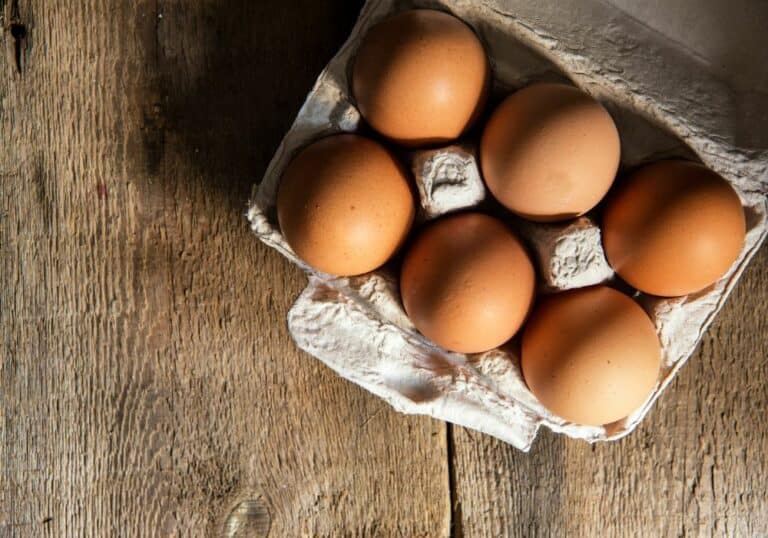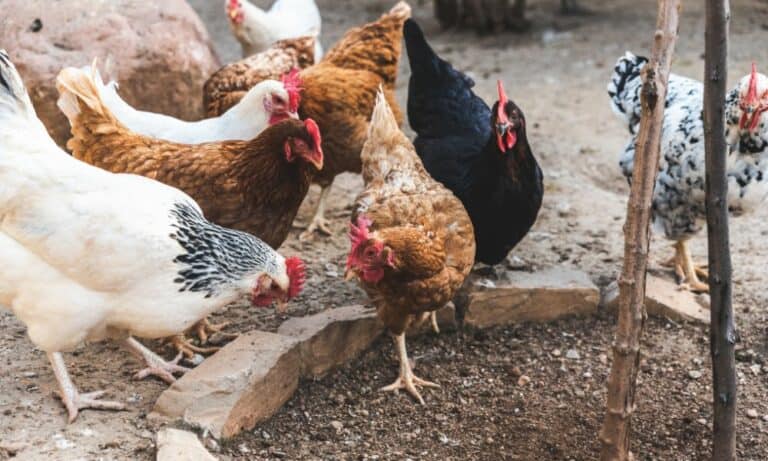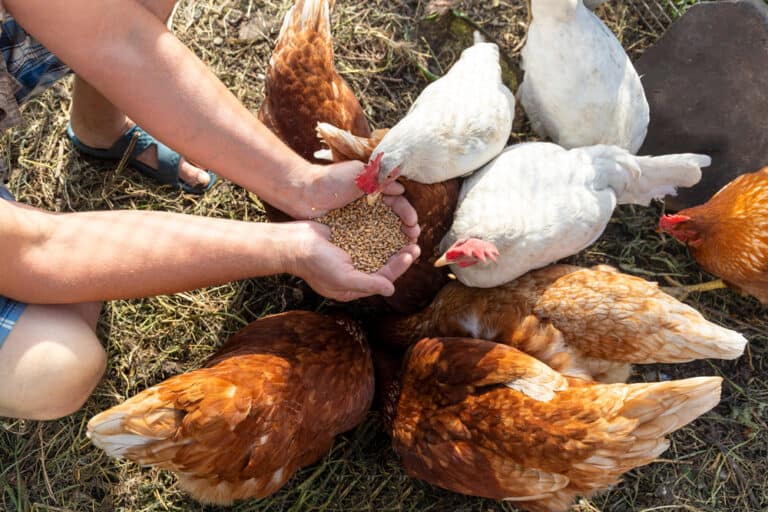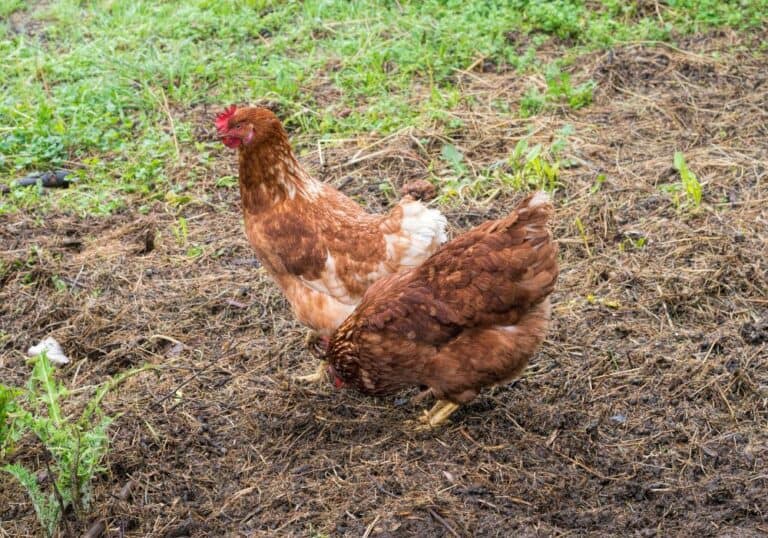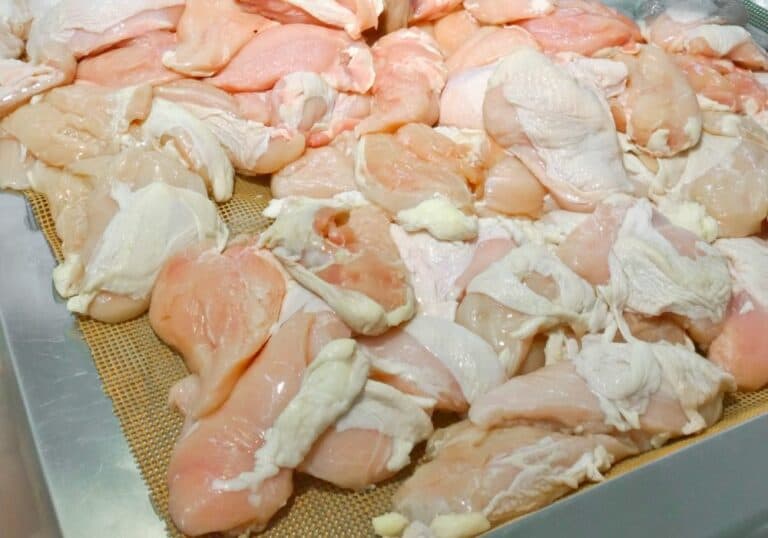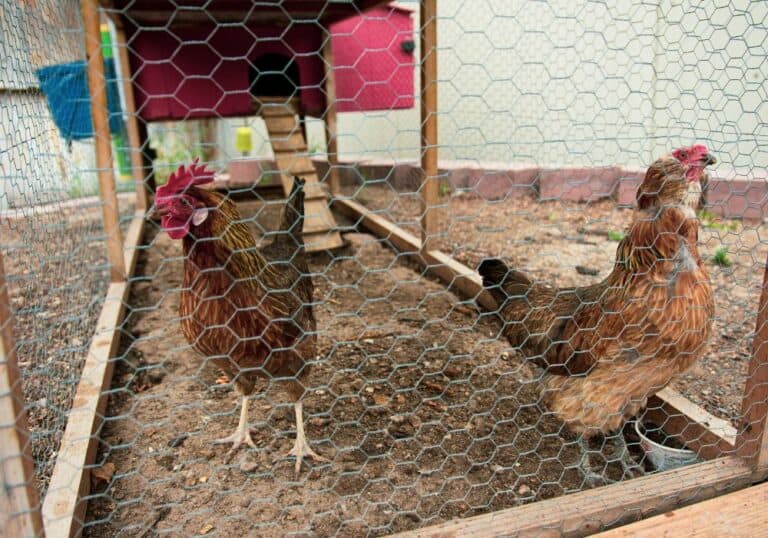It’s strange how often we think about food safety for ourselves, but not for our animals. Chickens are just like us. They need to have food that is fresh, safe to eat, and nutritious. To do that, you need to store food properly—just like with humans.
Storing chicken feed properly is important to your chickens’ health as well as the overall level of sanitation in a homestead. If you want to prevent pests, foodborne illnesses, and more, you will use this guide to do things the right way.
Why is food storage important?
Storing your chicken feed properly is the best way to prevent spoilage, keep your chickens well-fed, and keep pests at bay. Poorly-stored food can attract rats, turn into a pile of mold, and also become a source of worm infestations in your birds.
Much like with people, your chickens need to have fresh food to thrive. Proper storage will help ensure your chickens live long, happy lives. Bad chicken feed will make chickens sick and potentially kill them.
How should you store chicken feed?
It’s a simple task once you get used to it. These tips will ensure that you get the best results possible. It’s important to note that you should never store the feed in the bags it came in, especially long-term. Those bags are prone to moisture damage and can rip too easily!
1. Use Metal Storage Containers
The first thing you need to do is ensure that your feed doesn’t turn into a meal for other pests. Vermin, like mice, rats, and insects like cockroaches love to dine on chicken feed. As a result, you have to store feed in storage bins.
Not any bin will do, either. Rodents can chew through cardboard and wood without an issue. Metal bins and hard plastic bins are harder to bite through. So, keep your feed in containers that don’t make for easy access.
The ideal storage container for your feed will be opaque (to keep out direct sunlight), dry, pest-proof, and lined for food storage. If you notice condensation inside your bin, then you may need to rethink your storage method and throw out the feed.
You can actually get bins meant for chicken feed storage at most farming supply stores. You can also use a pest-proof container like metal trash cans with tight lids.
PRO TIP – Metal is great, but it can interact with the feed in a negative way. Having a plastic or ceramic interior can ensure that your food gets the best storage possible.
2. Keep A Tight Lid On It
Tight-fitting lids are a must for proper feed storage. It’s easy for squirrels and raccoons to lift up the lids of storage containers. Your feed should be kept inside a vacuum-sealed bin for more than just pest-related reasons.
You want to prevent the growth of mold on your feed. If your storage area gets wet, a tight lid will reduce the humidity that gets into your feed. The less humidity your food gets exposed to, the less of a chance of mildew and fungal damage.
No one wants to see the moldy feed, not even hungry poultry!
PRO TIP – The chicken feed has expiration dates, too. If you can spot the date on your feed bag, you should add a sticker to your lids to remind yourself when the feed has reached its expiry date. It can help prevent illness in chickens!
3. Avoid Mixing The Old And New
When you are trying to store livestock feed on a limited budget, your first impulse will be to put the new feed that you buy on top of the feed you already have. (This would be known as “Last In First Out” in some circles.)
This is a bad move because it poses a risk of contamination. If you have an older feed, you may already have some fungus growing there that you haven’t seen quite yet. Adding new feed on top of that can increase the risk of spreading that mold to your new food.
The best course of action is to finish the old feed bucket, give it a cleaning, dry it, and then replenish it with a new bag of feed.
4. Keep An Eye Out For Insects
Even the most persnickety chicken keeper can find themselves infested with pests. Keep an eye on your feed and make sure you don’t see anything crawling around in it. Beetles, moths, weevils, and flies can all find a chicken feed to be a good dinner.
If you see an influx of insects around your chicken coop (or feed storage area), it may be time to inspect your feed containers. You might have infested food that needs to be thrown out.
5. Give Food The Sniff Test From Time To Time
Rancid feed, much like all other foods, will have a foul odor. This odor is the smell of toxins that have started to release as the feed breaks down. Take a whiff of the chicken feed. If you notice a distinct change in odor, toss it out. It’s better to be safe than sorry.
6. Watch How Your Chickens Eat
Chickens are often one of the best litmus tests for the quality of the feed you have. Even if you don’t spot the foulness, you will be able to see your chickens’ reactions to bad feed soon enough.
A chicken that’s fed moldy feed will not want to eat their food. They will also get weak, start sneezing, vomit, or have diarrhea. In other words, chickens can get food poisoning and they can get grossed out by bad feed.
If you notice signs of food poisoning or that they suddenly don’t want to taste food, toss out that feed ASAP and sanitize your bins.
7. Don’t Overbuy
Chickens are surprisingly light eaters, all things considered. If you are new to keeping chickens, your gut instinct might be to get the biggest bag of feed out there. That’s not necessarily a smart move.
If you buy a giant bag, it will probably expire before you can use it all. This could lead to you accidentally feeding your chicken moldy food. Your typical chicken will consume 6 pounds of feed per month.
PRO TIP – Bags are sold in 50-pound sacks. Do the math to find out how much feed you will need per month. A typical sack will be enough to feed eight regular-sized chickens or 12 bantam birds.
8. When In Doubt, Toss It Out
There are going to be times when you look at the feed and wonder if you should feed it to your chickens. It won’t look terrible. It won’t have obvious signs of insect damage or rodent droppings, either. It just might have a stale smell or a change in texture.
A good rule of thumb to follow is that you should always toss it out if you notice something amiss. It’s better to compost decent chicken feed and keep your birds safe than it is to take a risk and accidentally poison your flock.
9. Add Nutrients Prior To Feeding
Do you supplement your chicken feed with vitamins, dewormer, or other perks? You’re not alone. However, there is a smart way to do this and a dumb way to do it. Certain vitamins and dewormers will cause mold or degrade over time if added while feeding in storage.
You should add any vitamins, additives, and dewormers to the feed right before you place it in front of your flocks. This will ensure that they get the full impact of the additives you chose. It also keeps the food safe.
10. Keep Your Feed Supply Store On Dial
If you have questions about the feed that you’re giving your chickens, you’re not alone. Even experienced chicken keepers will have moments where they want to get a second opinion or make a switch to a new brand of pellets.
Many people who work in chicken feed stores (or livestock stores in general) have experience with feed storage. If you find yourself in a recurring situation with pests or mold, they can offer pointers or help you diagnose the problem.
Seriously. They are there to make your life as a chicken owner easier. Don’t hesitate to ask them for advice.
Conclusion
Learning to store your feed properly isn’t a “maybe” for a good chicken keeper. It’s a must. Chickens need to have high quality, fresh feed in order to grow well and thrive on a farm. Feed companies make good food. You just have to store it correctly.
In a lot of ways, storing chicken feed properly is a lot like storing grains or beans for long periods of time. As long as you keep it in a dry, dark place away from pests, you will usually be good to go. And when in doubt? Ask a professional for a little bit of help.

